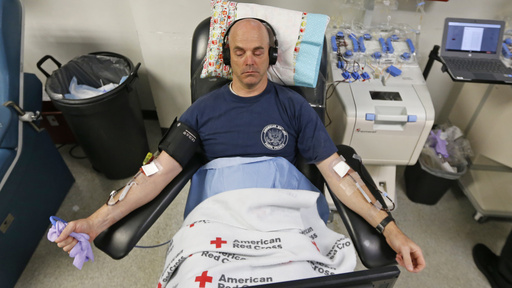SALT LAKE CITY — Changes may soon be on the horizon for blood donation regulations in Utah, but not necessarily as some might expect. The state’s legislative discussion has introduced a new concept to the acronym B.Y.O.B., now standing for “Bring Your Own Blood.”
A recent bill, which received unanimous approval in the state House, mandates that healthcare providers in Utah allow patients to use their own blood for medical procedures or select their own donors. This development has raised concerns among organizations such as the American Red Cross.
Under federal law, directed donations — typically involving contributions from a patient’s family or friends — are permitted, yet these requests undergo a stringent screening process. The bill’s sponsor, who has expressed strong anti-vaccine views, argues that the current regulations limit patient autonomy regarding their medical choices.
Currently, hospitals and blood collections agencies like the American Red Cross have significant authority to assess the safety and practicality of using a patient’s own blood or that of a selected donor. The COVID-19 pandemic notably led to an uptick in such requests, primarily caused by unfounded fears regarding the risk of vaccine transmission.
The proposed legislation, now moving to the Senate, stipulates that healthcare providers in Utah cannot obstruct patients from providing their own blood, save for emergency situations. Moreover, hospitals would be absolved of liability for any adverse outcomes stemming from the use of the patient’s blood.
Similar measures are being debated in Texas and have been previously proposed in Iowa and Kentucky, though they did not pass.
“Patients have come to me with requests to use directed blood donation, including their own blood, and have been denied at Utah hospitals,” said freshman Representative Kristen Chevrier, who is sponsoring the bill. “Their situations are serious and delicate.”
The Republican legislator from Highland contends that patients should have the option to receive blood from trusted sources rather than relying on blood banks that do not reveal the medical history of donors.
Prior to her role in the Legislature, Chevrier was a prominent figure in various anti-vaccine groups and campaigned against COVID-19 vaccination mandates for schools and workplaces. She has conceded that the legislation would allow patients who distrust COVID-19 vaccines to choose unvaccinated donors.
However, the U.S. Food and Drug Administration has stated that there is no scientific basis for these concerns. Transfusion recipients cannot contract the COVID-19 vaccine from vaccinated donors through blood transfusions, as vaccine components do not replicate in blood and do not alter DNA.
Many requests for blood from known donors often stem from patient preferences rather than urgent medical needs, according to Daniel Parra of the American Red Cross, Utah’s largest blood collection agency. He warned that an increase in such directed donation requests could detract from resources needed for patients requiring critical medical support.
“This bill could have unnecessary and detrimental effects on the provision of lifesaving blood to those in need,” Parra expressed. “While the intentions behind this bill may be positive, it provides no substantial benefits to public health and might adversely affect patient care.”
Kristina Pexton, a specialist in blood transfusion at a local hospital, shared her concerns during a recent committee meeting, indicating that the legislation could place significant stress on the healthcare system.
Parra also cautioned that directed donations could pose greater risks than relying on the community blood supply. Friends and family may feel compelled to donate, but might not fully disclose their health histories, thereby increasing the likelihood of transmitting infectious diseases to recipients.
Despite the lack of evidence suggesting that patients can access safer donors than those available through the volunteer blood donation system, several Utahns vocalized the importance of having a choice in this matter.
“When it comes to something as personal as our healthcare and specifically our blood, that choice should always be available to us,” expressed resident Gayle Ruzicka.




